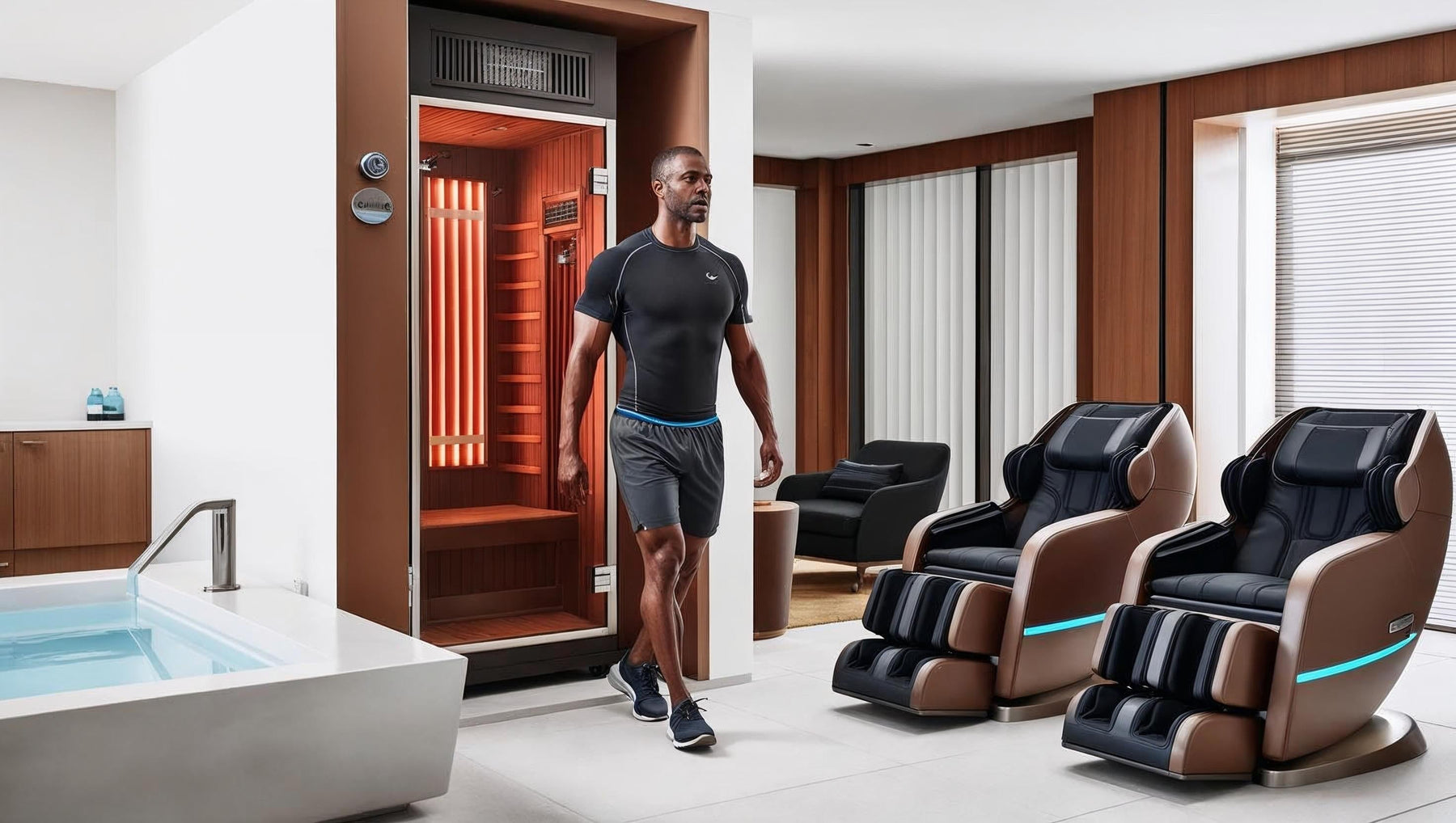support@biohaxys.com
866-355-8707

When people think about improving athletic performance, they often focus on training harder — longer runs, heavier lifts, more intense workouts. But what if the real secret to peak performance wasn’t in the training at all? What if it was in the time between the workouts?
That’s the reality top athletes, sports scientists, and biohackers have already embraced: recovery is the new performance edge.
Your body doesn’t get stronger during training. In fact, training breaks it down — muscles develop tiny tears, energy systems get depleted, and the nervous system is stressed. Recovery is when:
Muscles repair and adapt to handle more stress next time.
Energy stores are replenished for your next session.
The nervous system resets so your movements stay sharp.
Without proper recovery, your performance plateaus — or worse, declines.
A decade ago, recovery was mostly about stretching and maybe an ice bath. But today, with the rise of professional recovery lounges, home wellness tech, and research-backed therapies, we have a deeper understanding of its impact.
The big shift? Recovery is no longer an afterthought — it’s a planned, strategic part of training.
Whole-body or localized cold exposure reduces inflammation, eases muscle soreness, and boosts circulation. Cold also triggers a release of norepinephrine, which improves mental focus and resilience.
Clinically shown to speed up muscle repair, red light therapy also supports collagen production for skin health — a dual benefit for performance and aesthetics.
By using dynamic air compression sleeves, you can flush metabolic waste from muscles,
Combining technologies like infrared, vacuum resistance, ozone, and cryotherapy in one system can shorten recovery windows while improving body composition.
Overtraining happens when recovery can’t keep up with training load. Symptoms include:
Persistent fatigue
Decreased performance despite more effort
Trouble sleeping
Increased injury risk
By prioritizing recovery, you break this cycle and unlock consistent progress.
You can’t control if someone is naturally faster or stronger than you — but you can control how quickly and effectively you bounce back. That’s why recovery has become the great equalizer in competitive sports and personal fitness.
Schedule recovery days just like training days.
Use targeted recovery tools after key workouts.
Track recovery markers — heart rate variability, sleep quality, soreness levels.
Combine passive recovery (sleep, nutrition) with active recovery (light movement, mobility work).
At Biohaxys, we live by the motto “Biohack Your Potential.” We outfit athletes, wellness seekers, and high-performance humans with the world’s most advanced recovery technology — from cryotherapy chambers to multi-recovery pods.
Whether you’re chasing gold medals, personal records, or simply a pain-free life, recovery is your most powerful performance tool.